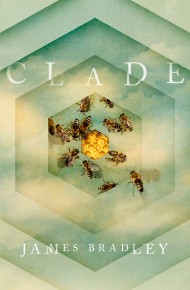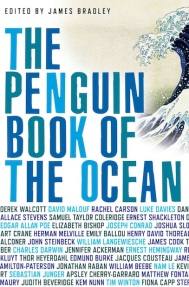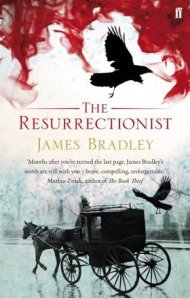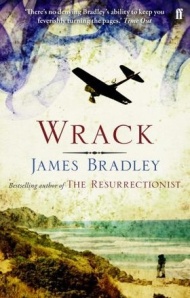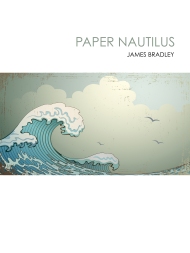Bread and Sirkuses: Empire and Culture in Peter Carey’s The Unusual Life of Tristan Smith and Jack Maggs

Magwitch (Finlay Currie) and Pip (Anthony Wager) in David Lean’s 1946 film of Great Expectations
From his earliest stories onwards, Peter Carey’s fiction has inhabited heightened realities, places that are simultaneously visceral and metaphorical. “Curious and strange” like “the most beautiful lies” that constitute Australian history (to borrow, as Carey does in his epigraph to Illywhacker, from Mark Twain), they are spaces in which history and truth constantly reveal themselves as fabrications and stories of dubious veracity. Like his characters, moving restlessly in search of escape, his worlds are not comfortable places, for all their rackety energy. Rather they are dreamscapes in which images of transformation and imprisonment recur over and over again, the self-conscious artifice of their cantilevered structures reminiscent of the glittering glass church in Oscar and Lucinda, alien and alienated, yet seductive all the same.
But if there is one thread that remains unbroken through his work, it is the treacherous, beguiling allure of the story. Harry Joy tells them, repeating his tired aphorisms that were once so full of delight like a mantra to preserve him in a world gone mad. Herbert Badgery more than tells them, he is one; a slippery-ripperty man of invention and deception, a con man who cannot lie straight in his bed but who, in his cheerful admission of duplicity, is perhaps more honest with a reader than many more ostensibly honest narrators (fictional and otherwise). Oscar and Lucinda’s glass church is a solid (if translucent) story, a physical realisation of the narrative implicit in the colonial process it represents, where the land is written by the coloniser, and dreams and stories, in this case Christian stories (and by implication Oscar and Lucinda’s as well) are imported to fill the space created by the lie of terra nullius.
And contained within this fascination with the role of the story is a complex, if deeply ambivalent relationship to the notion of culture, in particular the culture of the colony as it relates to empire, and of his own role as a storyteller within that relationship.
In many ways Tristan Smith and Jack Maggs are the distillation of these obsessions. The world of the former is an imaginary subset of the real world, spanning two nations, Efica and Voorstand, both imaginary, both instantly recognisable, simultaneously everywhere and nowhere; while the latter colonises the space of imperial fiction by recreating the Dickensian world of early Victorian London from a distinctly Antipodean perspective.
In the case of Efica and Voorstand, Carey’s prototypes are presumably the fictional realms explored in Swift’s Gulliver’s Travels, an echo amplified by Swift’s own placement of the islands of Lilliput and Blefuscu somewhere between Tasmania and Broome, matching the latitude, if not the longitude of Efica.
And as with Swift’s sprawling, impassioned, rambunctious creation, the brilliance of the world of Tristan Smith lies in the simultaneous allusiveness and elusiveness of its nations. Voorstand, the pious consumer society, home of the Sirkus and the Bruders, bears more than a passing resemblance to America, but Carey acts constantly to frustrate the easy identification: the Mennonite Dutch settlers owe as much to the Boers as they do to the Pilgrims; while Efica (Effigy?) differs from the real Australia as much if not more than it resembles it. The differences allow these lands to stand for empire and colony everywhere, and by frustrating easy identification Carey universalises the relationships that inform the novel’s narrative.
Like all colonial cultures, the Eficans live in a state of contradiction. Life is at once elsewhere – Voorstand contains the wellsprings of Efican culture; the seductions of the Sirkus; the nerve centres of business and government – and imminently, urgently, at home in Efica. Like the Feu Follet, itself a microcosm of this contradiction, the Eficans struggle with the urgent task of making a culture from the thin harvest of their own land, while struggling with the knowledge that any such culture will ultimately be no more than a crude aping of the imported conventions used to construct it, and so doomed to failure from the outset. Yet the Eficans, whether in the form of Vincent Theroux’s Blue Party (in antipodean Efica the political conventions of colour are, appropriately enough, upside down, and red is the colour of privilege and tradition, blue that of labour and reform) or in the form of the Feu Follet itself, continue to grapple with the burden of shaping this culture, of trying to understand themselves and the world in and on their own terms, until this struggle, with all its internal contradictoriness, comes to define the culture.
This ambivalence, given its most telling form in Tristan himself, the hideously deformed yet perversely determined narrator, is not new for Carey. He has long been aware of the stony ground on which Australian (indeed all) colonial culture is sown, yet simultaneously aware of its importance, and by implication, the importance of the storyteller. And similarly, he has long been aware of the slipperiness of the stories that constitute Australian history and culture, the con job of history. But in Tristan Smith this awareness is given a new dimension, placing the relationship between these contradictions and the external, real world relations of power and politics in the foreground. The need for a vibrant indigenous culture becomes all the more urgent in the face of the political and cultural power of the Voorstanders, who are in many ways the true rulers of Efica. Again and again we are made aware of their presence: in business, in their influence over Efican politics; in the close alliance between the Voorstanders VIA and the Efican Secret Service; in the sinister ELF-FOLK Project, with its echoing of Pine Gap; and in the overwhelming spectacle of the Voorstand Sirkus (so different from the modest carnivale of the Efican Sirkus).
What then of Jack Maggs? With its self conscious parallels between its parent-text, Great Expectations, and the complicating presence of a novelist who bears an obvious and clearly intentional resemblance to the author of the latter, it exhibits exactly the sort of complex positioning readers have come to expect from Carey. This double bluff is further complicated by the positioning of the text itself; in a kind of fictional double gambit the storytelling process is internalised twice over, between the novelist, Tobias Oates, and the narrator of the novel (or more accurately, the meta-novel) itself, who intrudes occasionally to remind the reader of subsequent events that flowed from the action under discussion.
In a fashion that should be familiar to his readers, Carey consciously plays up Oates’ resemblance to his literary forebear. Like Dickens, Oates is of humble beginnings, a self-made man with a talent (and a passionate desire) for self-advancement. Like Dickens he is, at this early stage of his career, making his living largely from his “sketches” of London life. Like the Dickens that toured the United States in 1842, he is also a man possessed of a variety of vulgar personal habits – grooming his hair in public for one. And while there is no evidence Dickens’ infatuation with his wife’s sister was ever consummated, Oates, like Dickens, is entwined in a complex (and ultimately tragic) relationship with his sister-in-law. But perhaps the slyest resemblance is also the most overt. Although Dickens was never to write a novel called The Death of Maggs, Oates does, but not, we are informed, immediately. The narrator of Carey’s novel reminds us that:
“The Death of Maggs, having been abandoned by its grief-stricken author in 1837, was not begun again until 1859. The first chapters did not appear until 1860, that is, three years after the real Jack Maggs had died, not in the blaze of fire Tobias had always planned for him, but in a musty high-ceilinged bedroom above the flood-brown Manning River. Here, with his weeping sons and daughters crowded around his bed, the old convict met death without ever having read That Book.
“For that lack Mercy compensated. She read The Death of Maggs, first as it appeared in serial, then again when the parts were gathered in a handsome volume, then again when the author amended it in 1861.”[1]
This is of course almost precisely the lineage of Great Expectations, which was begun in late 1860, appeared in serial form from December of that year and was published as a single volume less than a year later. Dickens amended the text in 1867.
But just as Efica is not Australia and Voorstand neither Britain nor America, Oates is simultaneously not Dickens, despite the teasing resemblances. Dickens never became enmeshed in the life of one of his subjects in the way Oates does with Maggs, his observation, as court reporter and journalist, was more removed, less implicated. Despite a long term affair with the actress, Ellen Ternan, for whom he eventually left his wife, Dickens was never sexually involved with his wife’s sister, nor, as happens in the more hysterical of Jack Maggs’ twin endings, did a lover of his die from complications arising out of an abortion.
As a reporter of his times and subjects, Oates is deeply flawed. His journalism is skewed to suit the prejudices of his readers, and his fiction, both the early satirical work and the later, more serious novels, of which we are told The Death of Maggs is the greatest, are instruments of imperial power. He has no desire to empathise with Maggs and his predicament, instead his intention, right from the outset, is to use him as a symbol of demonic energy, of colonial wickedness and perfidy.
In this Oates’ attitudes to the real world Maggs are similar to Dickens’ fictional intentions for Magwitch. Robert Hughes has remarked that Magwitch is the only fully drawn character from penal Australia in all of Dickens’ novels (save perhaps Mr Micawber in David Copperfield); summing up:
“. . . the distaste verging on dread with which some middle class Englishman (Dickens included) viewed the transported convict “making good” in exile.”[2]
Like Magwitch, Maggs has devoted his life in the colonies to repaying a debt to a child – now a young man – who helped him many years before. With his grubby colonial currency he has raised a simple boy out of poverty and into the life of a gentleman. The young man, Phipps (another echo of Great Expectations) has grown up shallow and conceited, and, horrified to discover his good fortune has such dirty beginnings, not just spurns but actively plots to kill his benefactor.
But like Magwitch’s generosity to Pip, Maggs’ generosity is double edged, containing within it the seed of revenge upon those who have made him what he is. With Phipps he has created a gentleman of his own, a living joke at the expense of the country and the class that have ruined him. His return is prompted as much by a desire to see this jest for himself as it is by the desire to see his “son”. And like Magwitch, he returns at the risk of his own life, only to discover he is no longer English, but something else, something alien and unwanted.
This is where the conflation of Great Expectations and Jack Maggs becomes interesting. Carey has colonised the fictional space of Dickens’ novel by appropriating his characters and situation, then using them to quite separate ends to those Dickens might have envisaged. By shifting the focus from Pip to Maggs, Carey brings a very different perspective to bear on the events of the novel. To begin with, it becomes a story about the returned convict, not the young man he has aided. But more importantly, it humanises Maggs, who, despite his violent tendencies and obvious criminality, becomes in Carey’s hands a profoundly sympathetic, even tragic character, a man who has endured much and made good from bad. Despite (or maybe even because of) the vengeful aspect of his philanthropy, he sincerely loves Phipps, carrying what he believes to be a portrait of his “son” with him at all times. Conversely, Phipps is far nastier than the vain and self-deluding Pip of Great Expectations, a venal, lazy man, incapable of remorse or compassion, who cares for nothing beyond his own reputation and pleasures. And the ends for both are quite different. Phipps, unlike Pip, meets a bad end, his opportunity for rebirth missed; while Maggs, unlike Magwitch, returns to the colonies and lives out a (relatively) happy and prosperous life with the spirited and intelligent Mercy Larkin.
But the events related in the meta-novel are used to quite different ends by the Dickensian Oates in his Death of Maggs. Oates comes to blame Maggs for the death of his beloved Lizzie, for in his mind:
“It was Jack Maggs who had done this, and in his grief Tobias began to heap up all of his blame upon him. It was now, on the seventh of May, in the darkest night of his life, that Jack Maggs began to take the form the world would later know. This Jack Maggs was, of course, a fiction, and so it may not matter that Tobias never witnessed the final act of the real convict’s search, never saw Henry Phipps raise that pistol with his trembling hand, never heard the deafening explosion, nor smelled the dark and murderous scent of gunpowder.[3]
Deservedly, Oates’ fictional Maggs dies in a fire, a victim of his own perfidy. Nevertheless Oates’ clearly unreliable and ideologically charged version of the man we come to know through the meta-novel’s narrator reveals the role of stories in constructing culture, albeit from an imperial point of view, the storyteller once again becoming both a puppet and a puppeteer of the culture they exist within. But simultaneously the novel’s happy ending, its commentary upon the use to which Maggs is put, all manage to cathartically reverse the process of colonisation, the colony in a very real sense reclaiming its history from its imperial master.
But it would be wrong to assume the happy ending in Jack Maggs was representative of Carey’s broader attitudes to colonial culture vis a vis its imperial antecedents. Carey’s nationalism, although clear at one level – take for example the rewriting of history in Illywhacker’s account of the origins of powered flight – is more ambivalent than many might assume. He is profoundly aware of the allure of imperial culture to those on the fringes of those empires, and more tellingly, of the paucity of those colonial cultures compared to their imperial rivals. It is an awareness he tussled with in Oscar and Lucinda’s depiction of the contrast between Home (England) and Away (Australia), a tussle in which Australia came off as a place of a brutal, almost dehumanising, pragmatism, a place too cruel to accommodate the doomed love of Oscar and Lucinda. In Jack Maggs, Maggs is drawn back to his former home like a moth to a lamp, only to discover there is no place for him there, that his home is now the hated colonies, a place we have come to know as one of unremitting cruelty and ugliness. Bettina Joy longs for the glass towers of New York, for the real world.
And in Tristan Smith there is the seductive allure of the Sirkus, its glitz and sex and spectacle, a seductiveness that is all too absent in the posturings of the Feu Follet’s agitprop, with its strident need to establish the existence of a genuine, indigenous, Efican culture.
Contained within this need is another pair of contradictions. One is the complexity of Carey’s attitudes to the culture within which he, as a storyteller, is intimately entangled. At the outset I remarked that I saw Carey’s attitudes to the culture of Australia (and its imaginary corollary, Efica) as deeply ambivalent. By now the source of this ambivalence should be clear, but I think it is given its most telling form in his treatment of Tristan Smith’s Eficans. Carey constructs the Eficans as admirable, practical, no-nonsense little antipodeans, a people who shine in adversity, and whose down-to-earth straightforwardness stands in contrast to the hypocrisy of the decadent Voorstanders. But he simultaneously reveals his uneasiness with this depiction by allowing us to see the Eficans as brutal, anti-intellectual, collaborationist, and divided. As Tristan himself allows, his people are “abandoned, self-doubting, yet so wilful that . . . we will tell you that the year is 426 [by the Efican calendar] and you must write your cheques accordingly.”[4]
Carey sees that these characteristics are really two sides of one coin. One person’s committed belief is, as always, another’s dogma. In Carey’s version of events, the Eficans are in many ways their own worst enemies, a people whose culture is poor because they have allowed it to be poor. But this failure only makes sense in the light of the historical and political processes that have made Efica what it is, processes that have, in large part, been controlled from elsewhere. Carey’s ambivalence can be seen as a recognition of the tension between these two competing impulses, the need to develop an indigenous culture and the pressure of the various imperial powers which dominate colonial societies, rendering the process of evolving a culture at once vital and doomed.
In the same way Maggs is a product of his imperial birthplace, marked out by his low beginnings for a life of crime, betrayed by his well-born benefactor, and subsequently cast out, never to be allowed to return. His ferociousness, his determination, his desire for revenge, the very characteristics that allowed him to survive in New South Wales, are the same characteristics that drive his obsessive love for Phipps, that underlie his self-sacrifice and philanthropy.
The other contradiction is that of culture itself. Like the birdcage in Illywhacker, Carey sees culture as a prison, a prison that the storyteller, whether novelist, ad man, or historian has a part in constructing. The sense of confinement underpins the restlessness of his characters, their constant need for escape and change.
Thus Lucinda, although Australian born and raised, is trapped by the brutal society she inhabits, by its violence and prejudice, and by the lies on which it is based. Bill Millefleur’s talents are only half-harnessed by the Feu Follet, which has its parameters set by the political culture of its own land. Tristan is trapped not just by his deformities, but by the social perceptions of them. For all of them, escape to the imperial culture is at once liberating and confining. Lucinda’s colonial roughness makes her unacceptable in London, where she is treated unpleasantly by no less a figure than George Eliot. In escaping the strictures of her own culture, thin as it is, she finds that culture has already marked her irreparably.
Similarly, Bill Millefleur finds success of a sort in Saarlim, but at the price of loneliness, at the price of losing his own identity, at the price of his talent. Again his colonial identity makes him an outsider, and he must pay a price for the rewards and liberties offered by Saarlim and its opportunities. And Jack Maggs, like his Dickensian forebear, finds himself trapped by his past, by the legal description of him as a transportee. While his life, now his debt to the Empire has been expiated, may be his own, this self determination exists only if he agrees never to return to his place of birth. When he decides to break this covenant, he discovers, to his horror, that not only has he been cast out, but his new home has so changed him that he can never return. To paraphrase Hughes, Maggs, like Magwitch, has been warped into a permanent outsider, the only possibility of redemption lying back there, on the outside[5].
But it is Tristan’s transformation that is the most radical, and the most appalling. For it is Tristan, the twisted, misshapen Efican nationalist who takes up the Mouse suit, the ultimate emblem of the despised imperial power, and garbs himself in it. Once within, he is suddenly released, as never before, his new appearance making him not just acceptable, but actually desired, but at what cost to his own identity? Certainly the Mouse suit, like Bill Millefleur’s rhinestone shirt and cowboy boots, chafes, and not just metaphorically. Once outside the context of their own lands, Carey’s characters are suddenly made aware not just of the limitations of their own culture, but of its possibilities, of its importance to their own identities.
In Bliss this contradictory tension is cathartically bridged by Harry Joy’s stories, when at the novel’s conclusion he finds a new role, as storyteller to the hippie community that adopts him. In this community, a metonymic Australia, all are “the refugees of a broken culture which has only the flotsam of belief and ceremony to cling to . . . Harry cut new wood grown on their soil and built something they all felt comfortable with.” And Carey, like Harry in these last days of his life, sees the cultural importance of these stories to the cultures that write them, and the power, both redemptive and creative, that they contain.
First published in Meanjin 3/4, 1997. Portions of this article also appeared in The New York Review of Science Fiction, No 101, January 1997 under the title, ‘A Slippery, Ripperty Thing: Empire and Culture in Peter Carey’s The Unusual Life of Tristan Smith’.
[1] Peter Carey, Jack Maggs, University of Queensland Press, 1997, pp391-2.
[2] Robert Hughes, The Fatal Shore, Pan, 1988, p587.
[3] Peter Carey, Jack Maggs, University of Queensland Press, 1997, p390.
[4]Peter Crrey, The Unusual Life of Tristan Smith, University of Queensland Press, 1994, p5.
[5]Robert Hughes, The Fatal Shore, Pan, 1988, p588.



